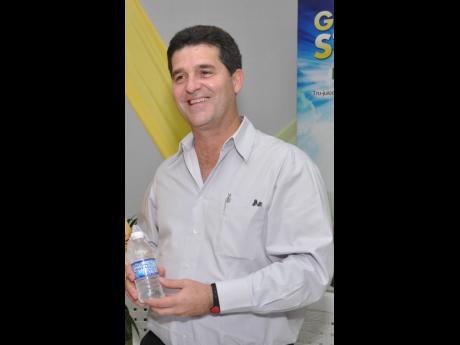Wisynco eyes bagasse as packaging solution, embraces market trends
Wisynco Group has found a way to carve out additional business from new rules governing sugary drinks, as seen in increased volume sales of water and its flavoured variations, but it is bracing for the likely fallout from another state mandate - the ban on plastics and styrofoam.
The environmental initiative will eventually curtail a part of Wisynco's manufacturing operation, the Sweet line, through which it makes packaging. But the company is weighing solutions, one of which is bagasse.
Wisynco is otherwise bullish about its beverage portfolio and plant operation, both of which it sees as well positioned to take advantage of market trends towards healthier eating habits.
The ban on single-use plastics and styrofoam packaging starts taking effect in January, and Wisynco is projecting a 30 per cent fall-off in business.
Chairman William Mahfood says discussions around substitutes are ongoing, but that the company is already preparing to repurpose its equipment and retrain staff.
One of the considerations under review, he said, is utilising the waste left over from the processing of sugar cane, called bagasse, to produce packaging similar to the banned styrofoam containers, and that talks with sugar producers are ongoing.
In the meantime, Wisynco is currently experiencing double-digit growth. Its turnover in the first quarter ending September improved by 12 per cent to $6.8 billion in revenues. Net profit improved from $664 million to $768 million. Those results indicate that Wisynco's added production capacity was starting to show up in the numbers, said Mahfood.
The new capacity, he added, has served to unlock revenue for the company.
"In the last quarter, we started the real implementation of three new production lines, and the significance of the effect is even more [stark] since it was in September," Mahfood told the Financial Gleaner.
The company also decided to move in lock-step with the changes regarding sugary drinks, and consumer demand for healthier alternatives, and was rewarded with better sales volumes in the period.
Wisynco distributes its own flavoured water and purified water under the Wata label, as well as fruit and fruit-flavoured drinks and sodas under various brands.
"With greater focus on low-sugar beverages, we are seeing our water sales go up significantly, and the same thing with flavoured water and natural juices such as Tru-Juice. This is all stemming from a greater level of consumer awareness around healthy alternatives," Mahfood said.
"Our revenues are outpacing the rest of the industry just because we have the largest market segment in juices and water," he added.
Come November, Wisynco will start distributing Worthy Park rum and sugar products, which Mahfood said should grow his company's revenue by $1 billion.
The company itself is also now an investor in the rum and sugar sector, having taken a 30 per cent stake in Worthy Park as part of the distribution deal struck in September. It means that if Wisynco's exploration of bagasse as packaging material is found to be viable, it would likely have access to Worthy Park's waste as a source of raw material.
In other developments at the company's plant in St Catherine, Wisynco now has its own cold storage, a 25,000-square-foot installation that replaces space that was previously leased by the company.
Now, in addition to its distribution of Nestle frozen products, Wisynco has also taken over the taken on the distribution of Helados Bon line of treats out of the Dominican Republic, and is expanding the Unilever line with Ben & Jerry's, Klondike and Magnum frozen novelties, as well as Haagen-Daaz premium ice cream, the chairman said.

